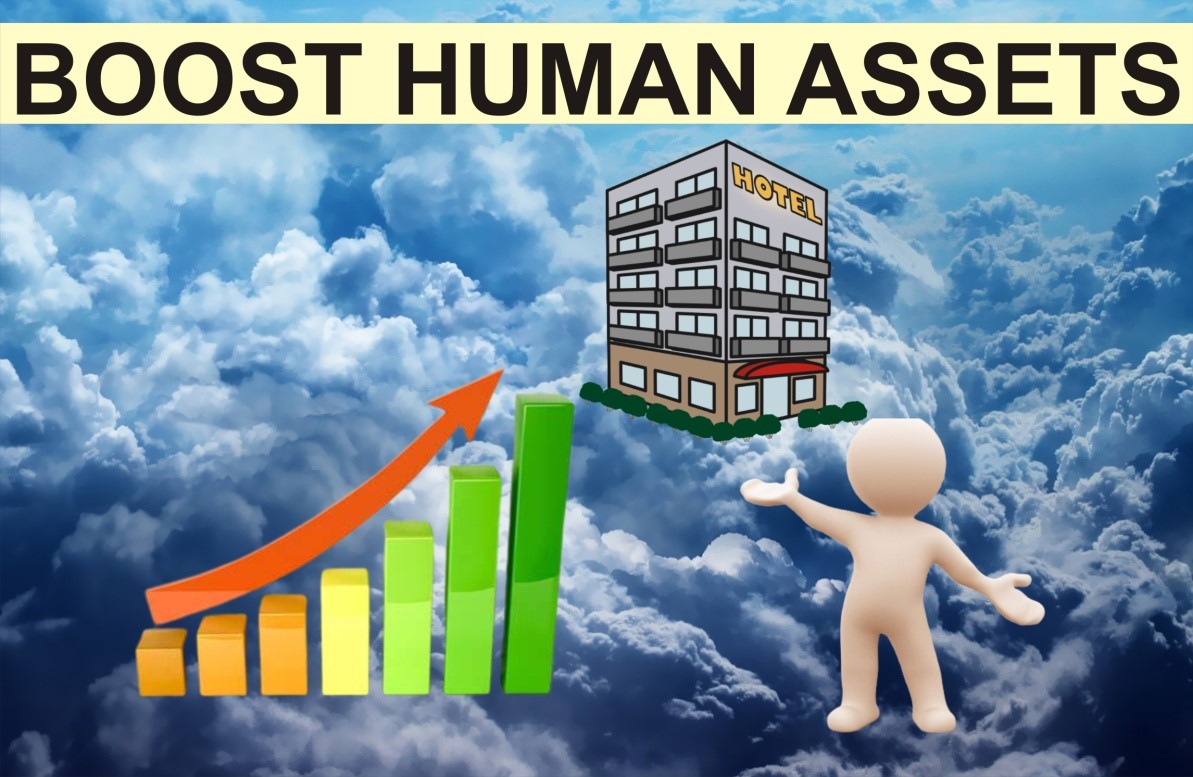- HOME
- About Us
- COURSES
- Campus Life
- Gallery
- Blogs
- Events
- Contact
The 5 ways to Boost your Human Assets in Hospitality

One of the biggest industries in the world, hospitality is dynamic and is growing as more and more people have money and are ready (and able) to enjoy travel, leisure, and dining activities.
However, as a result of this ongoing expansion, HR departments in the hotel industry face a variety of challenges, from keeping top performers to finding enough qualified individuals to fill the positions.
A little over 70% of employees in the hotel sector change jobs annually, which is a shockingly high rate when you consider that experts generally believe that the norm for other industries is between 10-15%.
Unrealistic employment expectations, low pay, demanding work, irregular hours, repetitive jobs, lack of job security, poor supervisors, a lack of routine, a toxic work environment, and little prospects for advancement are all factors.
Even though recruiters must employ a number of specialised tactics to counteract these factors and find candidates who can do the job successfully and fit into the corporate culture, the HR department’s function extends beyond simple hiring.
Assuring employee satisfaction, career development opportunities, and training where appropriate, resolving payroll concerns, and creating benefits programmes where feasible are all responsibilities of HR in the hospitality sector.
Some Proposed ways to protect the HR in Hotels.

A welcoming workplace
HR in the hospitality industry should collaborate with senior management (and sometimes even the legal department) to establish an environment where each employee feels valued and welcomed.
Having a diverse staff does not automatically result in inclusion; you must actively work to achieve this goal. Additionally, when you have an inclusive workplace, your business is better able to adapt, be creative, and attract top talent because your employees want to work in the environment you foster.
Track performance
Using workforce or people analytics, for example, you can learn how your staff are doing. You’ll have the ability to identify issues quickly and effectively. By keeping an eye on the data gathered, HR professionals will be able to see trends as they emerge, identify churn points where recurrent employees are departing, and put strategies in place to address any of these problem areas.
Build Incentive programs
The pay in the hospitality sector isn’t always excellent, and there’s not necessarily much you can do to influence the pay itself. Consider how you might express gratitude to your staff in your HR function in the hotel industry. According to numerous studies, Generation Z and millennials prefer to work for organisations that provide them with benefits and incentives rather than just a salary.
Cultivate your talent
Unquestionably, training and development are essential incentives. By developing a plan for your staff members’ personal and professional growth, you may considerably enhance your HR in the hospitality industry. By supporting the future careers of your employees, you will show that you have faith in their ability to perform in the not-too-distant future.
Encouragement for employee retention can be greatly aided by having faith in workers and providing for their professional growth. But developing talent doesn’t always entail enrolling staff members in training programmes. It can be as easy and affordable as developing a work environment where respect and growth are valued and where employees feel secure speaking up and valued.
Communicate clearly
Too often, businesses believe their workers are mind readers who intuitively comprehend the corporate strategy, but this isn’t the case. Make sure you keep your staff informed on corporate developments, both positive and negative. Treat your staff with respect and you’ll gain theirs in return. Also, don’t forget to get their opinions about the workplace. By doing this on a regular basis, you will stop rumours in their tracks, eliminate time-wasting misunderstandings (ranging from strategic company directives to tactical employee shift plans), improve employee performance because they will know what is expected of them, and have a clearer understanding of your company’s identity, including its values and goals.

